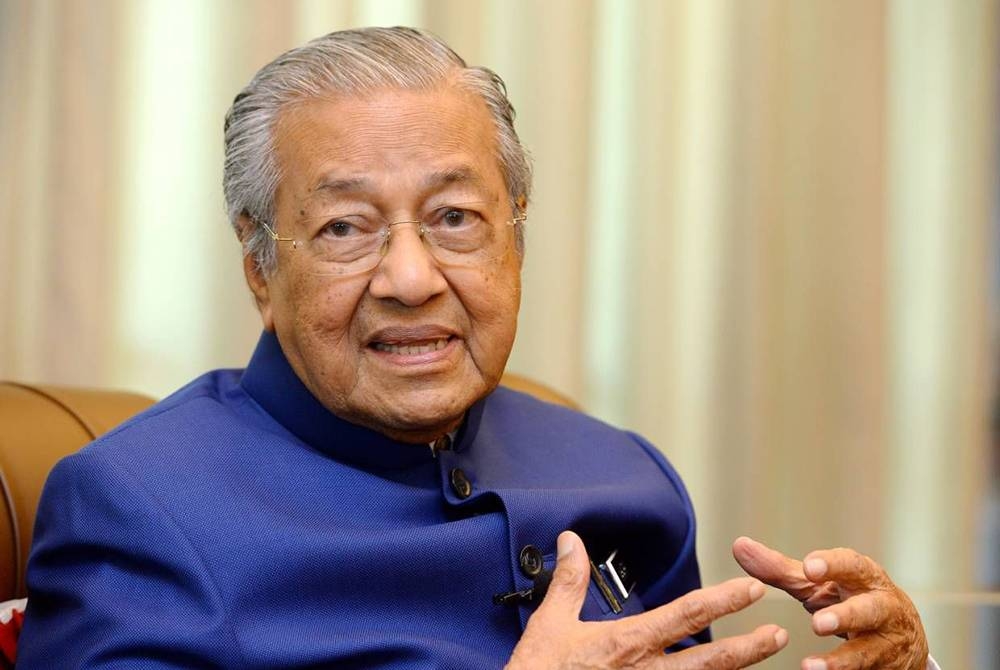Malay Proclamation movement: Promoting racial supremacy unhealthy, recipe for disaster, says expert

SHAH ALAM - The valuable lessons from other multiracial and multireligious countries should not be dismissed as it shows that promoting racial or religious supremacy to the detriment of other races or religions can be a recipe for disaster, said an expert.
Such an approach has the potential to create social disharmony and instability, and at worst, violent civil wars, warned Singapore Institute of International Affairs senior fellow Dr Oh Ei Sun.
This comes after former prime minister Tun Dr Mahathir Mohamad initiated the Malay Proclamation Movement.
He said Mahathir has been into broad ethno-nationalistic idea of increasing the Malays' well-being, since he was young.
He told Sinar Daily that Mahathir believes in strengthening the political and economic influence of what he perceives as their homeland, even though it is a diverse society comprising multiple races, Oh further said.
"Ideally, he would like all non-Malays to be subservient to the Malays, but would like all to emulate the Japanese (whom he adores) for being as hardworking and meticulous, habits which he has cultivated even into his ripe old age.
"When he sees that there are many non-Malay major players in the private sector and non-Malays are making inroads into the most crucial political portfolios of the country, he somehow doesn’t feel right and would thus like to "restore" Malay supremacy in both political and economic sectors," he claimed.
By promoting a sense of common nationhood with tolerance, Oh further added that respecting various racial and religious expressions in such cultures appears to be the most effective answer this far.
Universiti Teknologi Mara (UiTM) political analyst Dr Abdul Aziz Azizam said the Malay Proclamation movement led by the former Langkawi MP was a significant stride towards enhancing the overall stability of Malaysia.
"Firstly, it is about the Malay-Islamic brand itself. When Malays are associated with corruption and administrative inefficiency, it affects the image of Malays, as has happened in relation to 1Malaysia Development Berhad (1MDB), which has brought disgraceful condemnation upon our nation.
"However, up until now, we have been lacking a clear direction for restoring this perception.," Aziz said.
Secondly, he further said that it was about the failure of leadership within the Malay party. Umno, which was once the largest Malay party advocating for the interests of the Malays, has lost its ability to effectively represent the voice of the Malays.
Thirdly, it relates to the economic aspect, particularly during Mahathir's governance, where there was a consistent decline in the poverty rate among Malays.
"According to the Department of Statistics report in 2011, the poverty rate among Malays decreased from 60 per cent in 1970 to as low as 9 per cent in 2003.
"However, today we see some parties trying to disregard this fact and create alternative negative perceptions, while the reality is that Malays are increasingly burdened by debt and a high cost of living, resulting in a lack of economic capacity among them," Aziz added.
He further added that the next area of focus should be narrowing the education gap. When the economic competence of Malays is low, it affects family institutions, and subsequently, the quality of education for Malay children.
"This will occur when the dominant ethnic group in a country lacks political, economic, and educational capabilities, leading to inter ethnic tensions that could affect the stability of the nation.
"I believe that the action taken by Mahathir should be viewed with a clearer perspective, setting aside emotions and hostility.
"I fear that there may come a time when it is too late and these issues cannot be easily or readily rectified."
Meanwhile, International Islamic University Malaysia (IIUM) political analyst Associate Professor Dr Syaza Shukri pointed out that Mahathir wanted to save the Malays from losing the land to non-Malays due to lower economic standing.
"Now, politically, we are not dominant (meaning we have to compromise). He believes Malays would have to give up more," he said.
Syaza also believed that Mahathir perceived the present as a challenging time to catch up economically, leading him to prioritise ensuring that Malays retained political power as a dominant bloc.











